The shoulder is built by four tendons that attach the muscles to the bones, creating a cap that allows for rotational movement of the shoulder in its joint (the rotator cuff). When irritation occurs in these tendons, it can lead to four major shoulder problems; Tendonitis, Bursitis, Tears, and Impingement. All of these dysfunctions are common and can be rehabilitated with your physical therapist. Shoulder injuries can occur from repetitive motion that coincide with certain sports, hobbies, and careers. They can also parallel cervical/neck injuries and diseases. Shoulder tissue tends to degenerate with age, but a solid physical therapy plan can prevent pain, injury and further loss of stability.
Common shoulder conditions we treat
Rotator cuff impingement
Impingement syndrome occurs when one of more of the rotator cuff tendons become pinched as they pass over the top of the humerus in the joint capsule. This friction leads to inflammation in the bursa, causing swelling and pain. Common onsets of impingement syndrome are activities that involve repetitive arm motions such as swimming and tennis, and can also be caused by bone spurs.
Tendonitis/Bursitis
Bursitis is the inflammation of a bursa, the fluid filled cushion between moving structures (like joints!) Tendonitis is the inflammation of one of the tendons in the shoulder. Both of these conditions can be the result of untreated impingement, or can occur on their own. Either condition causes pain, inflammation and decreased range of motion.
Rotator cuff tear
Tears often occur after the presence of inflammation in one of the tendons has been aggravated, usually due to a fall, overuse, or stress at the limit of range of motion. It results in weakness, sharp pain, and lack of mobility.
Frozen shoulder
Frozen shoulder is a condition that is the result of immobility after an injury, surgery or inflammation from overuse. Characterized by stiffness, pain, and loss of range of motion in the shoulder joint. Signs and symptoms typically begin gradually but can be healed through the reduction of inflammation and then strengthening of the shoulder muscles and tendons.
Schedule an appointment in Asheville today.
Knowing the details before scheduling an appointment helps us help you.
